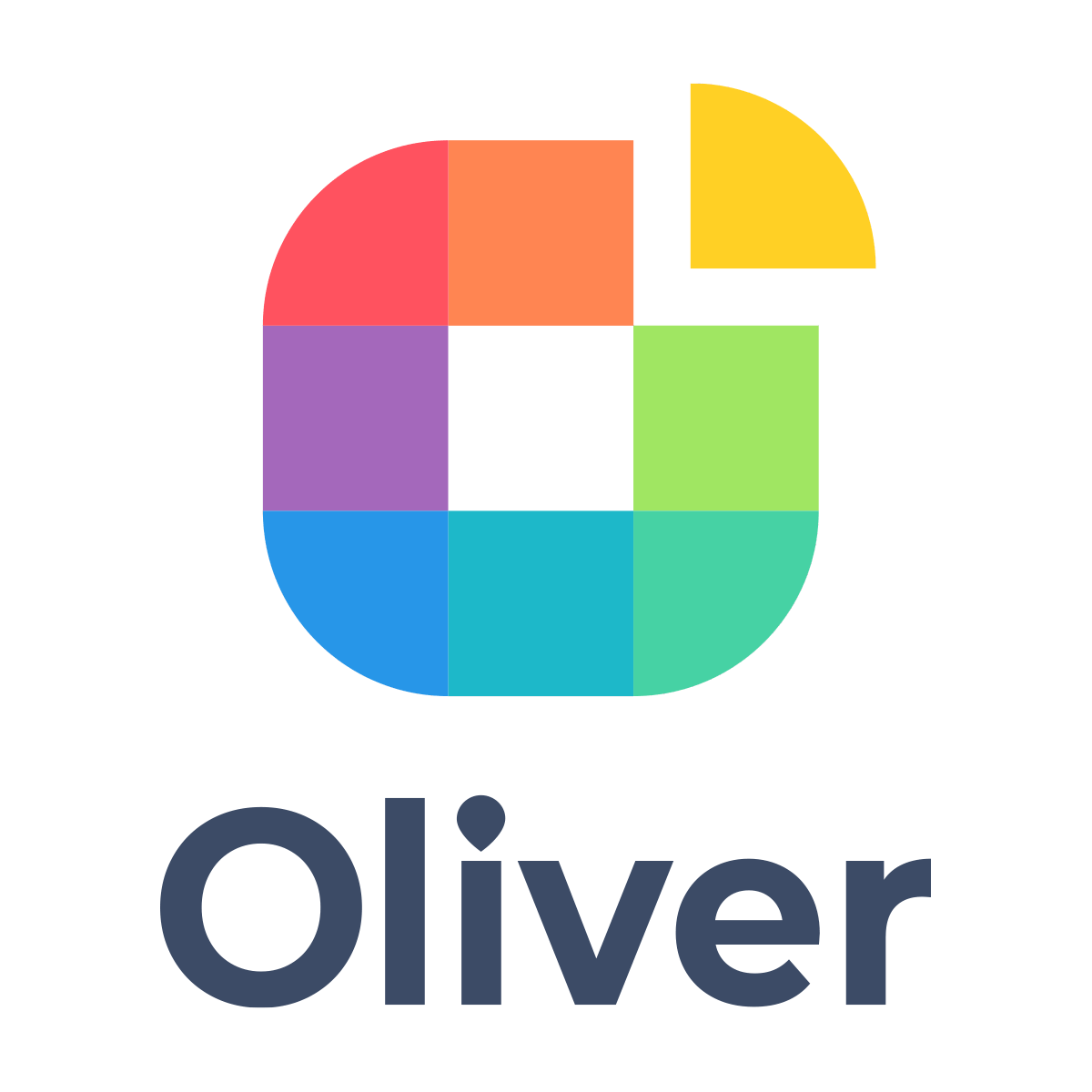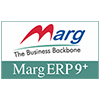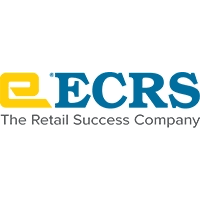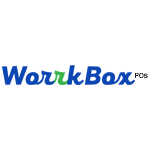Description

Oliver POS

Marg ERP 9+ POS
Comprehensive Overview: Oliver POS vs Marg ERP 9+ POS
Oliver POS and Marg ERP 9+ POS are both prominent point-of-sale (POS) systems, catering to varying needs in the retail and business sectors. Here's a detailed overview of each, including their primary functions, target markets, comparative market share, user base, and key differentiators:
Oliver POS
a) Primary Functions and Target Markets:
- Primary Functions: Oliver POS is designed to seamlessly integrate with WooCommerce, offering a cloud-based POS solution that provides a unified approach to selling both online and offline. It includes features such as inventory management, customer management, order tracking, and reporting tools. The system supports multiple payment gateways, enhances customer relationship management, and provides tools for detailed sales analytics.
- Target Markets: The primary target market for Oliver POS is small to medium-sized businesses that are using WooCommerce for their online stores. This includes retailers in various sectors such as clothing, electronics, and home goods who wish to manage their e-commerce and physical store through a single platform.
b) Market Share and User Base:
- Market Share: Oliver POS is part of a niche market growing alongside the popularity of WooCommerce and other WordPress-based solutions. While specific market share data might not be publicly detailed, it captures interest in e-commerce-centered businesses needing an integrated solution.
- User Base: Its user base primarily consists of businesses already embedded within the WooCommerce ecosystem, looking for straightforward integration without needing to switch platforms.
c) Key Differentiating Factors:
- WooCommerce Integration: Oliver POS is particularly beneficial for businesses using WooCommerce, as it provides direct integration without the need for complex syncing.
- Simplicity and Usability: Oliver POS is designed for ease of use, making it accessible for businesses that might not have extensive IT resources.
- Cloud-Based: Offers the flexibility of accessing the system from anywhere, which is essential for modern retail environments that operate both online and offline.
Marg ERP 9+ POS
a) Primary Functions and Target Markets:
- Primary Functions: Marg ERP 9+ POS is a comprehensive solution that provides not only point-of-sale capabilities but also broader enterprise resource planning (ERP) features. It includes inventory management, billing, accounting, GST compliance, payroll, and customer relationship management. Its robust reporting tools offer detailed insights into sales, stock levels, and financial data.
- Target Markets: Marg ERP 9+ targets a broader audience, including small to large enterprises across various industries such as retail, distribution, and manufacturing. Its ERP components make it appealing to businesses looking for all-in-one software to manage multiple facets of their operations.
b) Market Share and User Base:
- Market Share: Marg ERP has a more established presence in regions like India, where it has penetrated the market by catering to diverse business needs, particularly with its GST compliance feature.
- User Base: With its broad set of features, Marg ERP 9+ POS is used by a wide range of businesses, from smaller retailers to larger companies needing comprehensive management solutions.
c) Key Differentiating Factors:
- Comprehensive ERP Features: Unlike Oliver POS, Marg ERP 9+ offers extensive ERP functionality, providing businesses with tools beyond basic sales and customer management.
- Local Market Adaptation: Particularly in markets like India, Marg ERP is customized for local tax regulations and business practices.
- Scalability: It is well-suited for businesses looking to scale, as it supports more complex operations compared to simpler POS solutions.
Comparison Summary:
- Integration and Usability: Oliver POS excels with its seamless WooCommerce integration, offering simplicity and ease of use for users within that ecosystem. Marg ERP, on the other hand, provides a touch more complexity with its comprehensive ERP capabilities, suitable for businesses requiring extensive operational management.
- Market Fit: While Oliver POS fits well with small to medium-sized businesses focused on integrating their online and offline operations, Marg ERP serves a wide range of businesses from small to large, in need of in-depth ERP features.
- Region and Regulations: Marg ERP has a strong presence in regions where compliance with local regulations such as GST is crucial, offering tailored solutions that meet local business needs.
Ultimately, the choice between Oliver POS and Marg ERP 9+ POS would depend on the specific needs of a business, particularly whether they require just a POS system or a more comprehensive ERP solution.
Contact Info

Year founded :
Not Available
Not Available
Not Available
Not Available
Not Available

Year founded :
Not Available
Not Available
Not Available
Not Available
Not Available
Feature Similarity Breakdown: Oliver POS, Marg ERP 9+ POS
When comparing Oliver POS and Marg ERP 9+ POS, both of which are point-of-sale systems, there are several features and characteristics to examine:
a) Core Features in Common
-
Sales Processing: Both systems offer features for handling sales transactions, including processing payments, generating receipts, and managing returns and exchanges.
-
Inventory Management: They provide inventory tracking capabilities, allowing users to monitor stock levels, manage reorders, and track product movement.
-
Customer Management: Basic CRM functions are present in both, allowing users to manage customer information, track purchase history, and implement loyalty programs.
-
Reporting and Analytics: Both systems include reporting tools to provide insights into sales performance, inventory levels, and customer behavior.
-
Multi-Store Management: These platforms typically offer support for managing multiple store locations from a single interface.
-
Integration Capabilities: Both systems can integrate with other business tools and platforms, such as accounting software, to streamline operations.
b) User Interface Comparison
-
Oliver POS: Known for its simple and modern interface, Oliver POS is often praised for being user-friendly and intuitive. It generally adopts a more visual and guided approach, aiming to minimize the training required for new users. Its interface is designed to be seamlessly integrated with e-commerce platforms, providing a consistent look and feel.
-
Marg ERP 9+ POS: The interface of Marg ERP 9+ might be considered more traditional and complex due to its robust feature set. It focuses more on detailed functionalities which can make the interface a bit overwhelming for users not accustomed to such systems. It offers comprehensive data entry points and options, which can be beneficial for users looking for depth in functionality.
c) Unique Features
-
Oliver POS:
- E-commerce Integration: Oliver POS stands out for its deep integration with platforms like WooCommerce, making it a strong choice for businesses with both online and physical stores.
- Omnichannel Support: It is specifically designed to bridge the gap between online and offline sales channels, providing a more cohesive experience for businesses operating in both spaces.
- Customizable Checkout: Offers flexibility in setting up the checkout process to enhance customer service.
-
Marg ERP 9+ POS:
- Comprehensive Business Management: Marg ERP 9+ is part of a larger ERP suite, meaning it goes beyond POS functionality to offer extensive business management tools, including accounting, payroll, and supply chain management.
- Industry-Specific Solutions: It offers tailored solutions for various industries, such as pharmaceuticals, FMCG, and more, providing specialized features that cater to industry-specific needs.
- Extensive Reporting Capabilities: Known for its detailed and extensive reporting functionalities, allowing users to conduct deep analyses of various aspects of the business.
In conclusion, while both systems cover the essential POS functionalities, Oliver POS might be better suited for businesses that require e-commerce integration and a modern, simplified interface, whereas Marg ERP 9+ POS could be more appropriate for businesses seeking comprehensive business management tools and industry-specific features.
Features

Integration Capabilities
Ease of Use
Reporting and Analytics
Customer Support

Inventory Management
Sales Management
Employee Management
Reports and Analytics
Best Fit Use Cases: Oliver POS, Marg ERP 9+ POS
When choosing between Oliver POS and Marg ERP 9+ POS, it's important to consider the specific needs and contexts for which each tool is designed. Both systems offer distinct features that cater to different business types and industry requirements.
a) Oliver POS
Best Fit Use Cases:
-
Type of Businesses or Projects:
- E-commerce Integration: Oliver POS is particularly well-suited for businesses that operate both online and in physical locations and require seamless integration with platforms like WooCommerce. It's an ideal choice for small to medium-sized retailers looking to unify their online and offline sales channels.
- Small to Medium-sized Retailers: Oliver POS excels in environments where simplicity and ease of use are priorities. Retailers who need a straightforward, user-friendly interface that minimizes training time will benefit from its design.
- Boutiques and Specialty Shops: Businesses that focus on customer experience and need a POS with features like customer profiles and purchase history tracking can leverage Oliver POS effectively.
-
Advantages:
- Omni-channel Support: It provides a cohesive shopping experience across online and offline platforms, crucial for retail businesses that are transitioning into e-commerce.
- Affordable and Scalable: Offers pricing plans suitable for smaller budgets, and the potential to upgrade services as the business grows.
b) Marg ERP 9+ POS
Preferred Scenarios:
-
Type of Businesses or Projects:
- Inventory-heavy Businesses: Marg ERP 9+ POS is ideal for companies with complex inventory management needs, such as wholesalers, distributors, and retail chains that deal with a high volume of stock.
- Pharmaceuticals and FMCG: Businesses operating in the pharmaceutical and fast-moving consumer goods sectors, which require rigorous inventory control and regulatory compliance, will find Marg ERP 9+ a suitable option due to its robust inventory and billing features.
- Multi-location Enterprises: Companies that need to manage multiple locations with centralized control will benefit from its comprehensive reporting and management capabilities.
-
Advantages:
- Comprehensive Business Management: Beyond just POS, it offers extensive enterprise resource planning (ERP) functionalities, such as accounting, payroll, and business management features.
- Customization and Scalability: Highly customizable to fit the specific operational workflows of larger enterprises, and scalable to accommodate business growth.
d) Industry Verticals and Company Sizes
-
Oliver POS:
- Industry Verticals: Primarily caters to the retail sector, especially independent stores and small retail chains. It is more focused on enhancing customer interaction and experience through point-of-sale technology that integrates deeply with online retail platforms.
- Company Sizes: Best suited for small to medium-sized businesses, particularly those with limited IT resources and a need for intuitive, easy-to-deploy solutions.
-
Marg ERP 9+ POS:
- Industry Verticals: Caters to a wider range of industries due to its robust ERP capabilities. It's especially strong in sectors that require detailed inventory tracking and complex reporting, like pharmaceuticals, FMCG, manufacturing, and large-scale distribution.
- Company Sizes: While it can be used by small businesses, its extensive features and capabilities are particularly advantageous for medium to large enterprises looking for comprehensive solutions that encompass not just sales but overall business management.
In summary, choosing the right POS system between Oliver POS and Marg ERP 9+ POS depends significantly on the size of the business, the complexity of its inventory and sales processes, and the level of integration required with current online sales platforms.
Pricing

Pricing Not Available

Pricing Not Available
Metrics History
Metrics History
Comparing undefined across companies
Conclusion & Final Verdict: Oliver POS vs Marg ERP 9+ POS
To provide a conclusion and final verdict for Oliver POS and Marg ERP 9+ POS, let’s break it down into the requested sections:
a) Considering all factors, which product offers the best overall value?
The best overall value between Oliver POS and Marg ERP 9+ POS depends heavily on the specific needs of a business.
-
Oliver POS generally offers better value for small to medium-sized businesses that are heavily reliant on eCommerce platforms like WooCommerce and seek seamless integration with online retail operations. Its user-friendly interface and quick setup process make it ideal for businesses looking to streamline their online and offline sales channels.
-
Marg ERP 9+ POS, on the other hand, provides better value for businesses that require more robust inventory management and financial accounting features. It is particularly well-suited for medium to large businesses with complex supply chain needs and detailed reporting requirements. Marg ERP 9+ POS also tends to be more beneficial for businesses in sectors such as pharmaceuticals or FMCG due to its industry-specific modules.
b) Pros and Cons of Choosing Each Product
Oliver POS:
Pros:
- Seamless integration with WooCommerce makes it ideal for businesses that operate online stores.
- Easy to use with a modern interface, reducing training time for staff.
- Cloud-based solution, enabling access from anywhere and offering real-time sales data updates.
- Suitable for small to medium-sized businesses, ensuring scalability as the business grows.
Cons:
- Can be limited in features compared to more comprehensive ERP systems.
- May not offer sufficient customization for businesses with complex processes.
- Relies heavily on internet connectivity, which can be a downside in regions with unstable internet access.
Marg ERP 9+ POS:
Pros:
- Extensive inventory and financial management features, ideal for businesses with complex needs.
- Industry-specific solutions tailored for sectors like pharmaceuticals and FMCG.
- Offers offline functionality, which is beneficial for areas with unreliable internet.
- Provides customizable reporting and detailed analytics for better business insights.
Cons:
- Can be overwhelming for small businesses due to its comprehensive features and complex interface.
- Implementation might require more time and investment for setup and training.
- The on-premise nature of some features can limit remote accessibility compared to fully cloud-based solutions.
c) Specific Recommendations for Users
-
For Small to Medium eCommerce Businesses: Oliver POS is generally preferred due to its integration capabilities with WooCommerce, user-friendly nature, and scalability. If your operations are largely online and you need a POS system that seamlessly connects your online and offline sales, Oliver POS is the way to go.
-
For Medium to Large Enterprises Needing Comprehensive ERP Features: Marg ERP 9+ POS should be your choice if your business has extensive inventory, accounting, and supply chain management needs. It is particularly recommended for those in specialized sectors like pharmaceuticals that require industry-specific functionalities.
-
Evaluate Specific Needs: Before deciding, assess the specific requirements of your business such as inventory complexity, need for custom reports, integration capabilities, and budget constraints. Also, consider the technological adaptability of your staff to new systems.
In conclusion, both Oliver POS and Marg ERP 9+ POS have their strengths and can cater to different business needs. Your decision should be driven by a detailed evaluation of your business priorities and operational requirements.
Add to compare
Add similar companies




